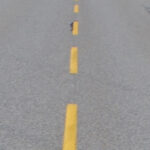Home »

Environmental groups call for urgent action
Submitted by Wildsight
New research sounds alarm on imminent danger to southernmost caribou from logging
Thousands of hectares of old growth and primary forests north of Revelstoke will soon be destroyed by industrial logging, threatening almost all of British Columbia’s remaining southernmost mountain caribou herds, according to new research released today by Wildsight, Stand.earth and Wilderness Committee.
The research, conducted using provincial data, reveals that 5,713 hectares of old growth and primary forests are either approved or pending approval for logging across the ranges of the Columbia North, Groundhog and Wells Gray South herds.
“It’s unacceptable that our government is still allowing old growth logging to occur in caribou habitat,” said Eddie Petryshen, Conservation Specialist at Wildsight. “With caribou, it’s not only talk and log. It’s talk and log, while the provincial and federal governments watch as localized extinctions happen in real time.”
Wildsight staff recently documented ancient western red cedars being actively felled in core habitat for the Columbia North caribou herd east of Mica Dam, at the tip of the Northern Selkirks, in a net 29-hectare Stella Jones cutblock.
“It is a failure of the provincial government and Premier Eby that we are still cutting down these ancient and irreplaceable trees in the year 2025,” said Petryshen. “We’re five years into the Old Growth Strategic Review and these trees are still falling — even in areas where they form core habitat for endangered caribou, even in our threatened Inland Temperate Rainforest.”
This logging is a direct result of how unprotected southern mountain caribou habitat is. Of the three herds analyzed, the Columbia North herd is the most vulnerable, with 68% of its habitat unprotected.
The trio of environmental groups is urging the province to stop approved logging and withhold pending permits for new logging in the ranges of these three herds, and immediately protect critical southern mountain caribou habitat.
“This is a federally-protected endangered species — its protection isn’t optional, it’s an obligation. Withholding pending logging permits in critical caribou habitat is the bare minimum,” said Lucero Gonzalez, Conservation and Policy Campaigner at Wilderness Committee.
“Not counting the thousands of hectares currently pending logging approval, 41% of the habitat for these three herds is already classified as disturbed by human activity. This exceeds the 35% disturbance threshold Canada considers as an absolute maximum for disturbance in matrix habitat. If that level of destruction is deemed unacceptable under federal law, it shouldn’t be considered acceptable on the ground either.”
With seven herds further south now extirpated, the Columbia North, Wells Gray South and Groundhog herds have the best chance of recovery of B.C.’s remaining southernmost caribou. Their future depends on the immediate preservation of the rich and complex old forests that mountain caribou rely on for food and shelter.
A handful of companies are having a disproportionate impact on the Columbia North, Groundhog and Wells Gray South herds, including West Fraser, Interfor, and Salmon Arm-based Canoe Forest Products, which has more approved logging in the Columbia North herd’s range than any other company.
“The B.C. government has set up endangered southern mountain caribou as collateral damage, despite promising to protect the forests that these animals need,” said Tegan Hansen, Senior Forests Campaigner at Stand.earth. “By approving thousands of hectares of new logging in caribou habitat, the B.C. government is signing off on extinction. We need timely, decisive action now to save these herds and their habitat, before it’s too late and they’re gone forever.”
The findings are in stark contrast to the recommended levels of habitat protection in the federal Southern Mountain Caribou Recovery Strategy, particularly when it comes to core habitat. For example, the strategy recommends 100% of the Columbia North herd’s core habitat be protected; only one third currently is.
The risk still facing southern mountain caribou habitat is unacceptably high. Stand.earth, Wilderness Committee and Wildsight are calling on the B.C. government to finally take its responsibility to this endangered species seriously, by working in true partnership with First Nations to fully protect critical habitat and reject all pending logging permits in the area.
Lead image: Southern mountain caribou watch a logging truck drive away. Photo by Cory DeStein







